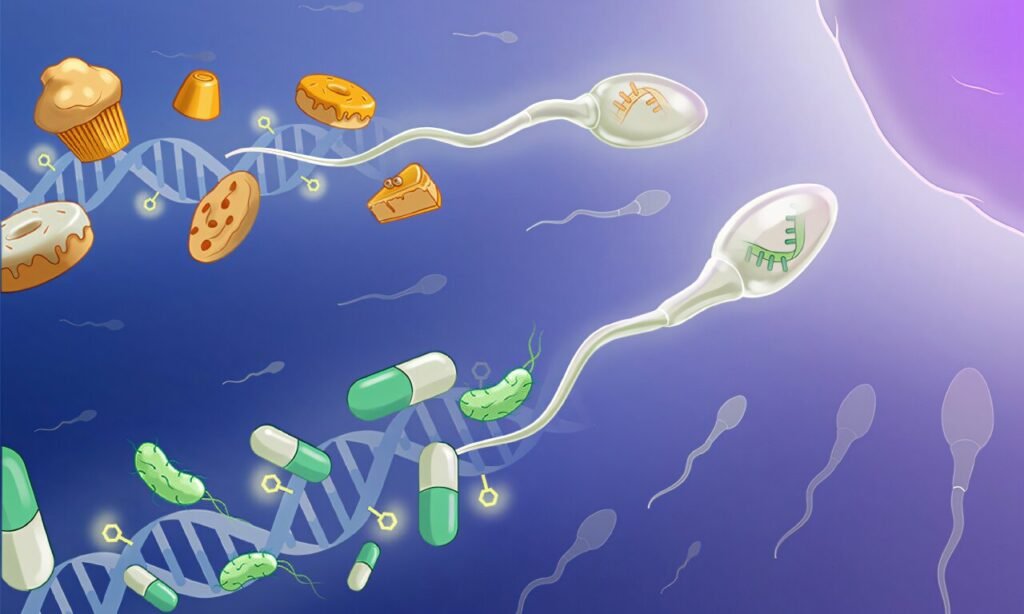Recent research has shed light on the concept of epigenetic inheritance, which involves the transmission of biological traits through chemical modifications to DNA and associated proteins. While maternal epigenetic inheritance has been well-studied, there is growing evidence to suggest that fathers can also transmit environmentally induced epigenetic changes to their offspring.
At the European Molecular Biology Laboratory (EMBL) in Rome, researchers are delving into the mechanisms behind paternal epigenetic inheritance. By exposing male mice to environmental perturbations such as antibiotics or a specific diet, the scientists were able to study the impact on early embryonic development. The results of their study, published in The EMBO Journal, revealed significant changes in gene expression in embryos derived from fathers who underwent these environmental exposures.
Interestingly, the study also highlighted the role of genetic background in determining how environmental factors affect offspring. Different mouse strains showed varied responses to the environmental perturbations, underscoring the complex interplay between genetics and environment in epigenetic inheritance. Additionally, embryos from older fathers exhibited more pronounced changes in gene expression, particularly in genes related to immune function.
Lead researcher Ana Boskovic emphasized the importance of large-scale experiments to unravel the complexities of epigenetic inheritance. The team’s meticulous experimental design serves as a blueprint for future studies in this field. Co-author Jamie Hackett noted that understanding the mechanisms of paternal epigenetic inheritance could lead to new strategies for disease prevention.
This research project aligns with EMBL’s Human Ecosystems Transversal Theme, which aims to explore how environmental factors influence disease risk in humans. By investigating the impact of paternal environments on offspring at the molecular level, the researchers hope to advance our understanding of epigenetic inheritance and its implications for future generations.
For more information on this groundbreaking study, readers can refer to the publication in The EMBO Journal by Mathilde Dura et al. This research represents a significant step forward in unraveling the complexities of epigenetic inheritance and opens up new avenues for exploring the interplay between genetics, environment, and health outcomes.
As we continue to uncover the intricate mechanisms of epigenetic inheritance, this research underscores the importance of considering paternal influences in understanding how biological traits are passed down through generations. The findings from this study have the potential to shape future research directions in the field of epigenetics and pave the way for innovative approaches to disease prevention and treatment.


